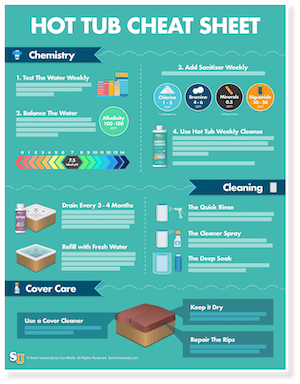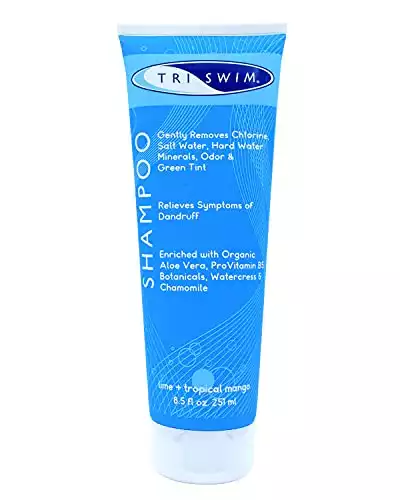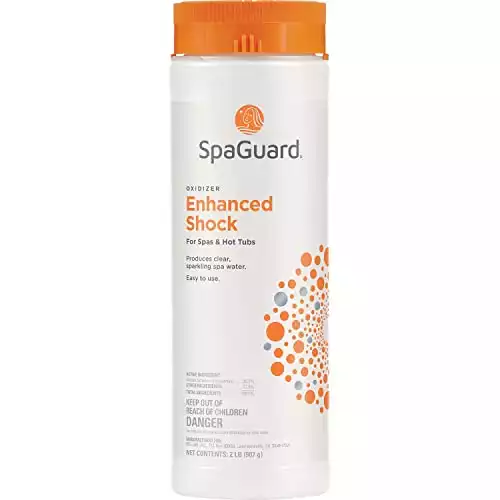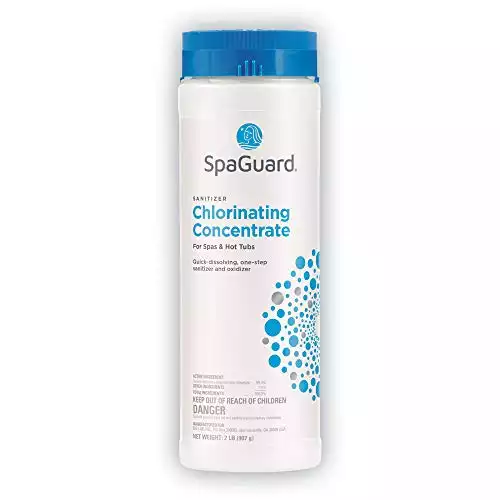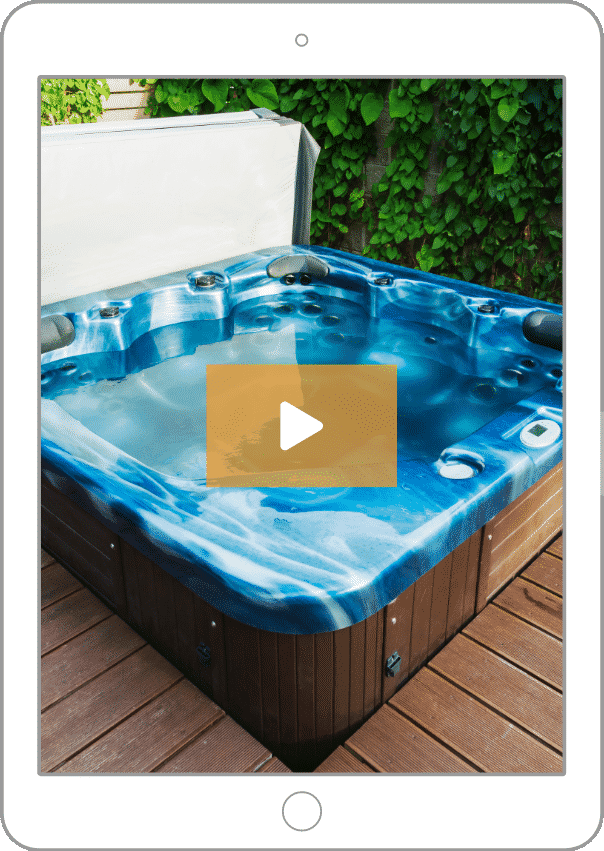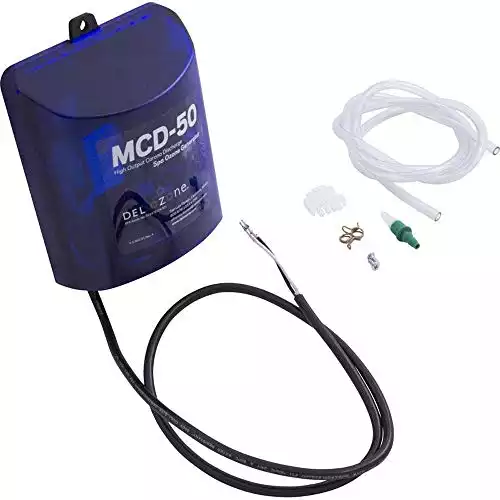You know chlorine and bromine are effective hot tub sanitizers. But maybe you’re not crazy about soaking in them. Or maybe you’re sensitive to them, and you look like a cooked lobster when you emerge from your spa. That’s not a good look on anyone.
So maybe you’d rather not use chlorine or bromine to sanitize your spa, but you also don’t want to soak in dirty water (ew), or even forgo the hot tub altogether. The good news is, you don’t have to if you switch to one of the handful of available alternatives.
Why Use an Alternative Hot Tub Sanitizer?
It could be that you’ve never really thought about using an alternative. Or you may not have been aware that chlorine and bromine weren’t the only options, despite experiencing some of the not-so-great aspects of traditional sanitizers.
Chemical Smell
A lot of chemicals just plain stink, including hot tub sanitizers. A lot of people aren’t bothered by the smell, but it affects everyone differently. If you find yourself holding your breath or your nose while adding sanitizer to your hot tub, you may want to look at other options.
Eye Irritant
Part of the reason salt water hot tubs are popular is because the softer salt water is easier on the eyes then chlorinated water is. True, you’re not swimming in your hot tub, so you’re probably not actually opening your eyes underwater. But hot tubs do splash, and it’s still possible to get water in your eyes, allowing the hot tub sanitizer irritate them.
Chemical Sensitivity
Ever thought you might be allergic to chlorine? Do you get out of your spa or pool, and look like you’ve been lounging on the surface of the sun? Well, it’s highly unlikely to actually be allergic to chlorine or another tradition hot tub sanitizer, but you may have a sensitivity to them.
The effect you see on your skin is more likely to be caused by contact dermatitis. It’s not serious, and it’s easily treated, but it sure is uncomfortable and unsightly until it clears up.
The Bleach Effect
Chlorine is absolutely safe to use as a hot tub sanitizer. But that doesn’t mean it doesn’t have a few adverse effects.
For one thing, you may not suffer contact dermatitis, but soaking in a chlorinated hot tub can still dry out your skin, making it itchy and uncomfortable. It can also dry out your hair, and if it’s blond, you may start to notice your hair turning green.
Finally, you may notice your swimsuit starting to fade after a few soak sessions in the spa. Chlorine is essentially bleach, after all. Even the most expensive swimwear isn’t invulnerable to the bleaching effects of chlorinated water.
Choose an Alternative Hot Tub Sanitizer
“Hmm …” you say. “I actually have noticed a change in my skin and hair since I started using my hot tub more. I just didn’t know I could do anything about it.” You can! All you need is an alternative hot tub sanitizer.
Ultraviolet (UV)
Did you know sunlight can kill bacteria? It’s true. And it’s all because of the sun’s ultraviolet rays.
This power has been harnessed in ultraviolet hot tub sanitizers that kill bacteria and other contaminants with low-grade radiation. The downside is, this type of sanitizer does absolutely nothing to help keep the water clear.
You’ll still need to shock your hot tub, and you may even need to supplement with chlorine or bromine to keep the water clear and fully sanitized. You may not be able to completely stop using a traditional sanitizer, but you can at least reduce the amount.
Ionizers
The use of silver as an antibacterial dates back to ancient Rome. Copper is known to also have antibacterial properties. Put them together, and you get a hot tub sanitizer called an ionizer.
This type of sanitizer works by releasing silver and copper ions into the water. They kill bacteria and other contaminants in the water, but like ultraviolet sanitizers, don’t prevent clouding.
They’re also not completely effective on their own. You’ll need to supplement with chlorine or bromine to completely sanitize your hot tub, but you won’t need to use as much of either chemical.
This granular, stabilized chlorine is fast-acting and quick-dissolving. You can add it directly to your hot tub water. Because this product contains CYA (stabilizer), it's best used in outdoor hot tubs that are exposed to UV rays.
Tired of trying to keep your hot tub clean all the time and dealing with chemicals?
You'll save $100 right away with this easy-to-follow digital ebook and video course. This is the ultimate maintenance guide that hot tub manufacturer doesn’t provide you.
Click Here to Learn MoreOzonators
Available in several sizes to accommodate a variety of spas, hot tub ozonators inject ozone into the water to sanitize it. Because they don’t use any chemical at all, ozonators can be an ideal alternative to traditional sanitizers.
Ozonators can be a little more expensive than other options, so going this route may mean making an investment in the health of your hot tub. You may also have to modify your hot tub to accommodate an ozonator.
But if you’re looking for clean water without chemicals, this alternative hot tub sanitizer may well be worth the work and expense.
Biguanide
This alternative hot tub sanitizer has a few scientific names: polyhexamethylene biguanide, polyaminopropyl biguanide, and polyhexanide. You can see why it’s better known simply as biguanide, or sometimes just PHMB.
Often sold under the brand BaquaSpa (or Baquacil for pools), biguanide is well known for being gentle on the eyes and skin while still being an effective sanitizer. In fact, some contact lens solutions contain this chemical, often listed in the ingredients as PHMB.
While biguanide will effectively sanitize your hot tub, you will still need to shock it. To do this, you must use a non-chlorine or non-bromine based shock, never a chlorine-based shock.
It’s Good to Have Options
Chlorine and bromine will probably always be the most popular sanitizers, but at least you know they’re not your only options. With a little due diligence, you can decide which alternative hot tub sanitizer is best for you and your spa.
Happy Soaking!

Recommended Guides
Looking for how to raise the pH in your hot tub? Or maybe how to lower the pH in your hot tub? Well, look no further. It's all right here.
Do you know which hot tub chemicals you need to keep the water balanced? What about when and how to add them? Get a hot tub chemistry education right here.
High alkalinity cause major hot tub issues. But why your alkalinity high? Let's start there and help lower the alkalinity in your hot tub now!
Keeping tabs on your hot tub water is easy and the best thing you can do to head off problems. Just keep some spa test strips on hand, and you're set.
